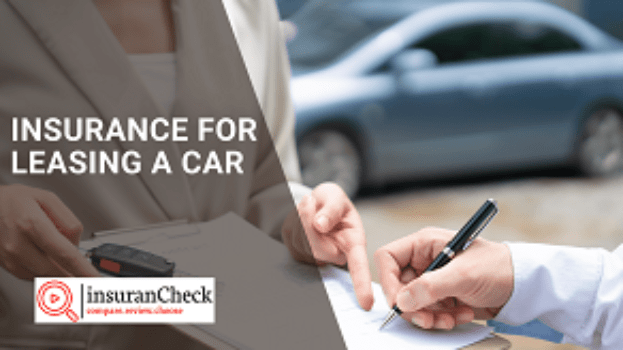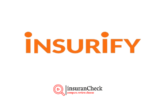While most drivers opt to purchase vehicles outright, around 30% of new cars sold each year are leased instead of bought outright. Leasing may be beneficial for some individuals and families. If they require vehicles with advanced safety features but cannot afford their purchase outright. You could possibly pay nearly $100 in monthly lease payments. In this article, we will look in insurance for leasing a car, requirements, gap insurance for leased car.
If you plan to lease a vehicle, auto insurance might still be essential. Knowing which coverages may be required by lenders or law is paramount when leasing cars. While certain policies might be optional for lease agreements, others could be mandatory requirements from them.
Leased Car Insurance Requirements
Leasing a car requires insurance; otherwise, you cannot drive away. State laws dictate what basic coverage levels must be met depending on where your car will be registered and registered to. Plus your leasing company likely requires certain coverages. That differ based on which model of car is more costly to insure than another.
Add the leasing company as an additional insured and loss payee on your insurance policy. So, they may collect any payouts due to damage done to their car from any claims for repairs made against it. This way, any time damage occurs on its part, it would receive any payouts as per policy terms.
Common State Requirements
Here we will discuss about common state requirements of Insurance for Leasing a car. Car insurance requirements differ between states. Liability insurance is usually mandatory. Liability coverage usually falls into two categories.
Bodily injury liability coverage: It pays medical expenses associated with accidents for other parties involved. It covers typically up to $25k/per person and $50k per incident. A common minimum coverage amount for bodily injury liability policies is 25% of medical costs or $50K in total per accident.
Property damage liability coverage: It covers damage caused to other people’s properties after an accident occurs. It covers typically, a minimum coverage requirement of $10,000 per incident should apply.
Uninsured Motorist Coverage: Depending on where you reside, having uninsured motorist coverage could be required of you by law. Should someone hit you without auto insurance and leave medical expenses unpaid, uninsured motorist coverage can help cover these bills.
Be mindful that state minimum coverage requirements may not cover all costs related to an accident. Selecting higher liability limits as an economical way of increasing protection is one option available to drivers.
Common requirements by leasing companies
Leasing companies typically require a full coverage insurance policy on any vehicles they lease to cover damage that could incur during use, with two coverage levels usually provided: “Comprehensive coverage and uninsured/underinsured motorist.”
Collision coverage will reimburse you for damage done to your vehicle as the result of a collision with an object or another vehicle that you caused.
Comprehensive car coverage covers you for damages caused by unexpected events outside the realm of collision – acts of God such as theft or falling objects as well as natural disasters – such as theft and natural disaster damage to your car.
Some leasing companies require greater liability coverage than what states mandate. Typically, this involves providing at least $100,000 of bodily injury liability per individual and $300000 total, as well as $50,000 of property damage liability coverage.
Get Quote: Insurance For Lease Car
You can easily get quote of insurance for lease car from following best providers.
Users can enter basic information on Insurify to receive quotations from multiple providers supplying the coverage they need. Not an insurer itself, Insurify …
Lemonade is an advanced insurance provider that offers best but limited car insurance. The best value-added service is signing up in minutes and receiving …
What kind of insurance do you need for a leased car?
Most leasing companies require their lessees to obtain fully comprehensive vehicle coverage as part of the leasing agreement since their assets will become legally theirs during a lease contract. By opting for such coverage, not only is damage done covered, but so too is yours as part of its entirety. Here is what’s included within such policies:
- Cover for damage to other vehicles
- Injuries suffered by yourself and any others involved
- Unprovable claims against yourself for non-fault
- Cover resulting from inaccessible fault claims
Most comprehensive policies offer coverage for items like these as well.
- Windscreen repair
- Courtesy car
- Breakdown cover
These can vary significantly between insurers; always double-check what exactly your insurance covers before selecting one for yourself.
Gap insurance for leased car
Your leasing company may require gap coverage as an add-on, while it could also come included as part of your monthly rental payment as “lease coverage.”
Gap insurance covers the difference between what’s owed and the actual value of a vehicle, especially new models whose value depreciates rapidly after driving off of dealership lots. Leasing used cars usually doesn’t make financial sense in comparison.
Gap insurance policies usually stipulate a maximum benefit amount that ranges between $30,000. And $125.000, depending on their policy terms.
Gap insurance for leased vehicles may incur either an extra monthly charge or a one-time upfront fee; when purchased through an auto insurer, this cost of coverage is added directly onto your monthly invoice.
Do leased car owners incur higher insurance costs?
No. Neither the type nor size of the vehicle has any bearing on its insurance premiums.
However, leasing companies typically require more costly policies than simply meeting state minimum coverage requirements. When adding higher liability limits, collocation, and comprehensive protection costs can increase significantly.
Another factor that could increase auto insurance rates is maximum deductible restrictions. A deductible is what you pay towards repairs before your insurer begins covering them; if your leasing company requires low deductible plans, insurance rates could rise accordingly.
What steps can you take to lower the cost of insurance for leased car?
Particularly there are few strategies to for keeping premium under control of insurance for leased car. Here are following strategies:
By increasing your voluntary excess
It will lower the overall costs of your policy, but before making this move, it’s worth thinking through whether this payment would still be manageable in case something unfortunate comes your way.
Consider Your Mileage-Like Leasing Agreements.
Mileage contracts tend to cost more for insurance. Given more people are working remotely and traveling less, it may be worthwhile taking time to assess what your mileage requirements should be.
Add More Drivers
Designating more named drivers may help lower your premium, especially if you lack experience or have no claims bonus. Age, experience, and driving history must all play into any decision on named driver addition.
Install a Telematics Device
Installation of a telematics device may be your sufficient way for cutting premium costs. Such devices monitor speed, distance traveled and time-of-day driving patterns to help insurance providers better assess how you utilize your car – leading to reduced (or increased, depending on usage patterns) premiums depending on usage patterns.
Pay annually
Annual payments may help keep costs in check over a two to four-year lease term since you won’t incur interest costs with monthly payments.
Conclusion
Insurance policies typically cost more when covering leased cars due to leasing companies requiring you to buy more coverage on them than when insuring ones you own directly.
But you might still be able to reduce your premium rate of Insurance for Leasing a car, particularly through shopping around. On other hand there is Gap insurance for leased car. One way of doing that may be improving your credit. Experian offers free checks of both scores and reports, so taking steps toward improving them could help bring down insurance rates even further.










